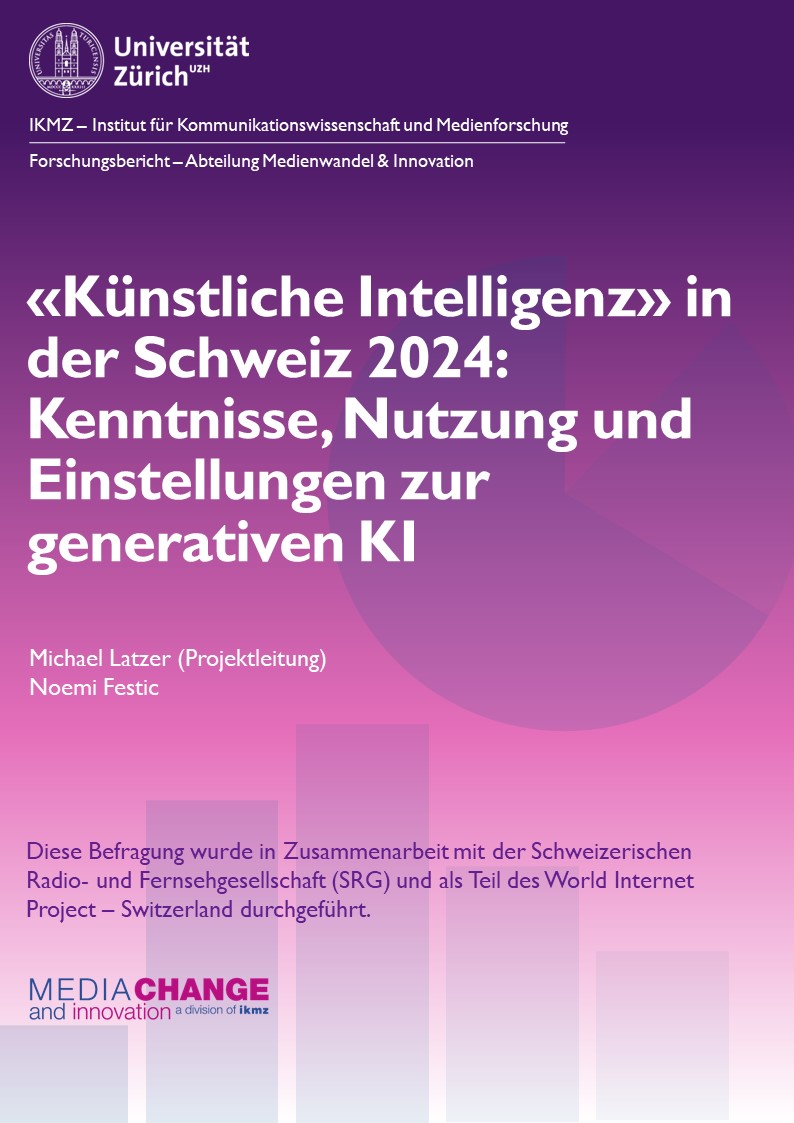“Artificial Intelligence” in Switzerland 2024: Rapid Diffusion and Increasing Digital Inequality
21st November 24This report examines how the current technological developments in “Artificial Intelligence,” specifically generative AI based on large language models (e.g., tools like ChatGPT), have been integrated into the daily lives of the Swiss and what they think about them.
Rapid diffusion: Within a year and a half of launch, AI tools are known across Switzerland, with half the population and nearly all of the young using them
Nearly all Swiss internet users (98%) have heard of AI tools, a figure that has increased since 2023 (79%). Half of Swiss internet users (54%) have already used AI tools. Among the youngest age group, nearly everyone (93%) has tried AI tools, with 43% using them frequently. In contrast, in the oldest age group, only 8% use them frequently, while almost three-quarters (72%) have never used them. The use of AI tools has risen by 17 percentage points since mid-2023 (2024: 54%, 2023: 37%).
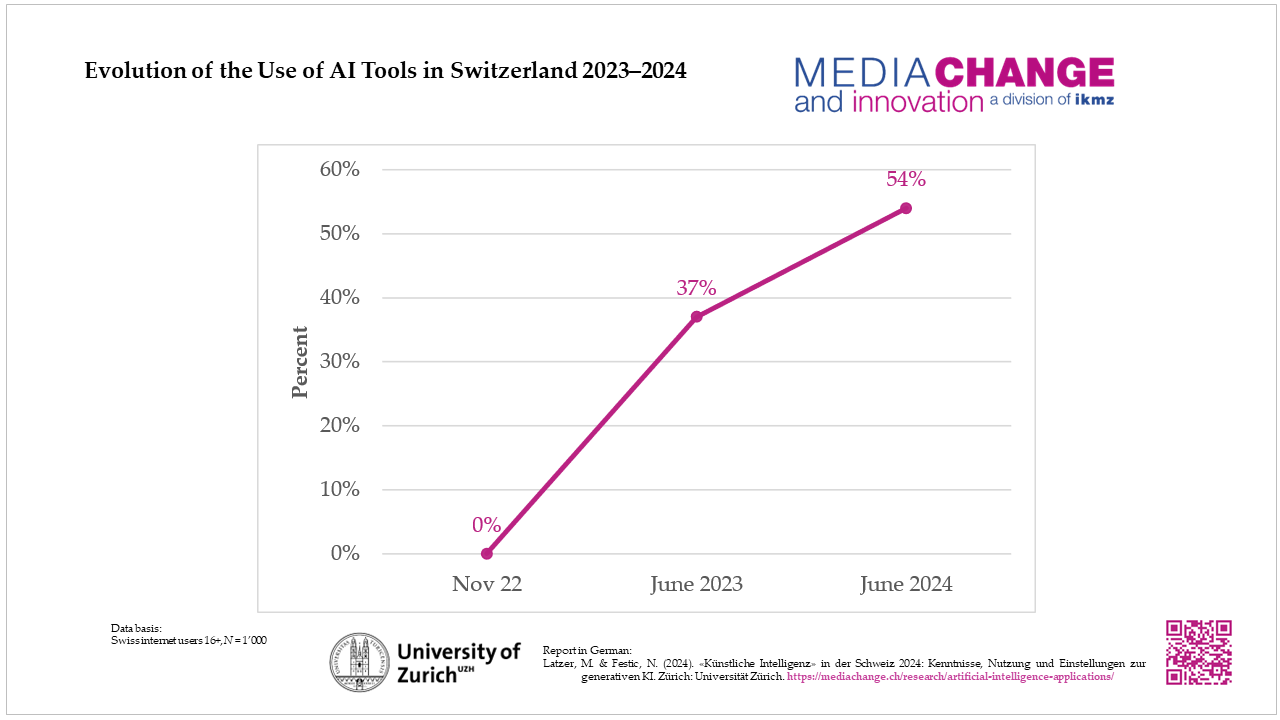
Digital inequalities in the Swiss society by age and education are amplified by Artificial Intelligence
Knowledge of AI tools is significantly higher among younger age groups (61% among the youngest vs. 7% among the oldest). Younger individuals are also much more likely to be AI users (ages 16–29: 93%, ages 70+: 24%). Additionally, the proportion of users rises sharply with increasing levels of educational attainment (low: 37%, medium: 42%, high: 70%).
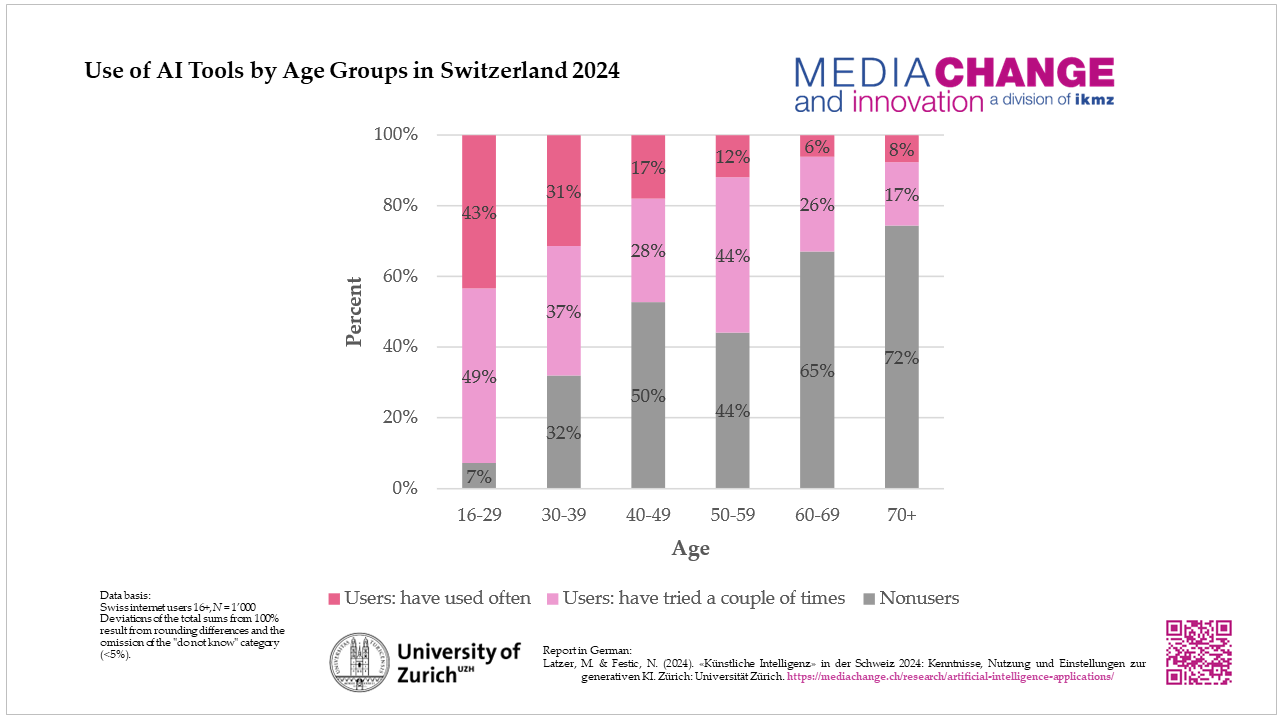
Early signs of saturation; Incorrect information from AI tools is the main reason for non-use
There appears to be a certain level of saturation in the adoption of AI tools: 77% of current non-users consider it (very) unlikely that they will use AI tools in the next six months. The most common reason for non-use is that "generative AI often produces incorrect information" (mean = 4.01). An almost equally important reason is that AI tools have little relevance to the daily lives of respondents (mean = 3.93).
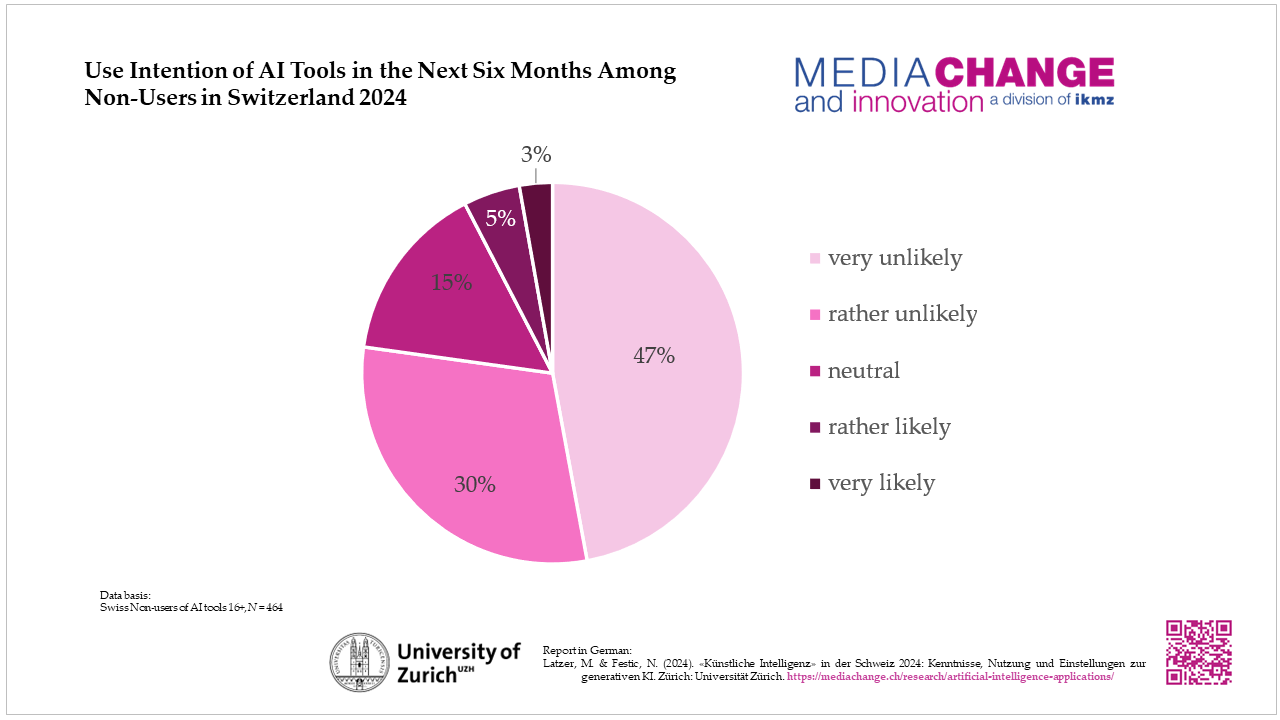
Half of Swiss internet users are skeptical about children using AI tools; AI users, younger people, and men view it more positively
Half (54%) of Swiss internet users aged 16 and older believe that children should not have access to AI tools. A third (33%) support access, and 13% are undecided. Younger individuals, men, and AI users are more likely to support children using AI tools.
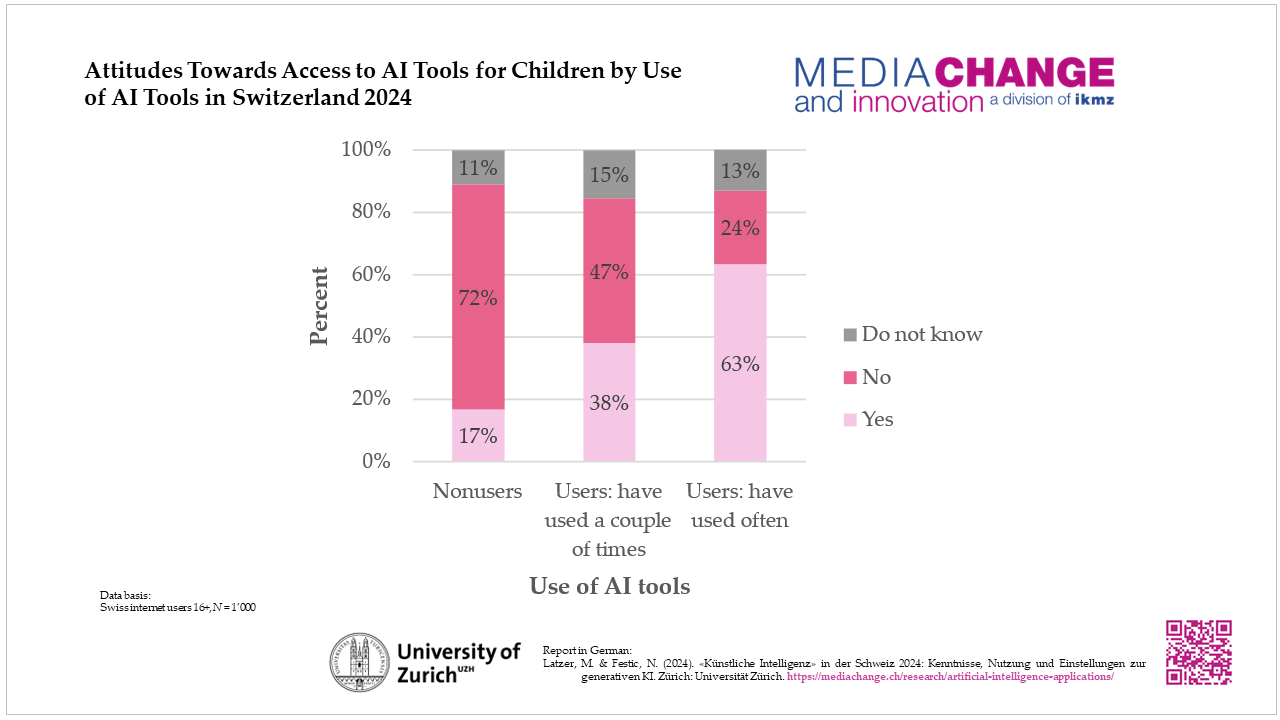
As part of the World Internet Project – Switzerland, we collaborated with the Swiss public broadcasting association (SRG) to collect nationally representative data on the use and implications of these AI tools. As part of their repeated “Wie geht’s, Schweiz?” survey that is concerned with the well-being of the Swiss population in various areas of life (politics, personal finances, work, relationships, etc.), the data was collected in May and June 2024.
The results are available in the report and the news release in German and English. The English version of the report will be published soon.
- «Künstliche Intelligenz» in der Schweiz 2024: Kenntnisse, Nutzung und Einstellungen zur generativen KI
- News Release “Artificial Intelligence” in Switzerland 2024 (in German)
- News Release “Artificial Intelligence” in Switzerland 2024 (in English)
Infographics
- Evolution of the Use of AI Tools in Switzerland 2023-2024 (English/German)
- Use of Al Tools by Age Groups in Switzerland 2024 (English/German)
- Use Intention of Al Tools in the Next Six Months Among Non-Users in Switzerland 2024 (English/German)
- Attitudes Towards Access to AI Tools for Children by Use of Al Tools in Switzerland 2024 (English/German)

